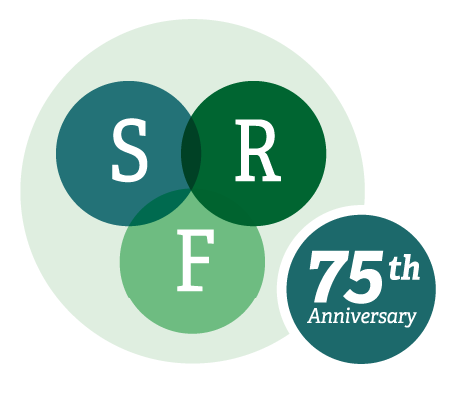Postdoctoral Screening Scientist at the National Phenotypic Screening Centre, University of Dundee.
By Dr Kane
I completed my master’s degree in India in 2014, and while I enjoyed research, the idea of committing to a 4-year doctorate terrified me. So, after four years of working in industry – and a lot of nudging from my partner – I realised my passion for academic research and mustered the courage to apply to graduate schools. Thus began a painful six months of colour-coded Excel sheets filled with graduate school applications and funding bodies, which can be a whole other blog post in itself! This blog captures my musings on my journey of moving abroad for a PhD.
Doing a PhD was the most gruelling but gratifying four years of my life, allowing me to follow my passion for reproductive research whilst travelling the world and making new friends. However, the experience came with its own unique set of challenges, and while doing a PhD is daunting on its own, doing one thousands of miles away from your loved ones is even more so. In this blog post, I’ve summarised the pros and cons of moving abroad, highlighting the things to consider before moving countries for a graduate programme.
1. Supervisors
When I was first applying to graduate schools my friends already in their PhD journeys strongly advised me to choose my supervisors very carefully. Choosing the right supervisor can completely change your PhD experience and future career choices due to the major role they play. There are several key factors to consider before choosing a supervisor, like supervision style, personal rapport, lab environment, support and most importantly research alignment. Remember, you spend 4 years with your supervisors significantly enhancing your career and contributing to theirs! Speaking with prospective supervisors before accepting the position, as well as talking to current or past students, can give you valuable insights into what it’s really like to work with them.
2. Visas
I have no qualms in saying that visas have been the bane of my existence. I’m sure every international student with limited passport privileges would say the same. Even with a strong passport, studying in a foreign country would still require a student visa. Visas are expensive, have long processing times, and are iced with several bureaucratic layers. It also means you can only work for a fixed number of hours outside of your studies which could be a major roadblock for self-funded/partially funded PhD positions.
Living on a visa means you can face restrictions on travel and must think twice about bringing family members over to visit. Attending international conferences, which are a key part of networking during a PhD, requires significant planning and extra financial support to fund visa applications. Not to mention visa renewals and post-study work visa applications present an entirely different set of challenges.
3. Food
For many people, including yours truly, food is a key source of comfort. Bad mood? Feeling homesick? A comforting meal can easily fix that. So, before moving to Scotland, I made a long list of food items and cookware I thought I’d need to bring. After paying a hefty fee to the airline for overweight luggage, I arrived in the UK, only to discover that the national dish here is chicken tikka masala! This taught me an important lesson: researching the host country’s cuisine is essential before moving, while also keeping your mind open to the local cuisine and being considerate of cultural or religious factors.
Moving to Scotland also revealed the important social role food plays here—hosting meals, potlucks, or even sharing a pint at the pub is a key part of building connections and fostering social interaction. Similarly, hosting meals and sharing my cultural food with new friends and colleagues was a wonderful bonding experience.
4. Acclimatising to the climate
Harsh winters or extreme heat can significantly affect your daily life and hence researching the local climate is essential before moving to a new country. On my first day in Edinburgh, the climate played Russian roulette. It rained, snowed, and was sunny for a brief period—all on the same day! While preparing for this is helpful, going overboard and buying excessive bulky winter wear can be expensive and not very useful. Winter clothes available in the host country are often more suitable and affordable.
Arriving a few days early gives you the time to settle in and gradually acclimatise, allowing your body to adjust before starting inductions and meeting lab mates.
5. Feeling of belonging
No one fully prepares you for moving to a different culture and the extreme homesickness you might experience. I’ve been living away from my home country for almost six years, and I still feel homesick from time to time. The fear of being far from loved ones and not being able to reach them in emergencies never entirely goes away. Speak to more people and don’t hesitate to seek support when you need it.
Now, some of my closest friends are from outside my home country, and today I can call Dundee home! I first encountered the idea in an article by Elif Shafak, where she wrote, ‘I belong in many places at once,’ and I couldn’t relate more. Yes, I am Indian, I miss home, and I deeply connect with my culture. But I am also deeply attached to Scotland and even if I leave, it will always be home.
Being away from your home country and all the comforts it provides can make even the smallest things seem intimidating. So, the last piece of advice I would give myself (if I could) is to not be afraid to ask for help!
I have been very fortunate with my experience, and in the summer of 2023, after four years, multiple breakdowns, and one pandemic, I finally earned my doctorate with a postdoc position lined up. It is both an honour and a privilege to work in this country, one I do not take lightly. I am extremely grateful that I took this opportunity and came to the UK. Not only has it advanced my career, but I have also learned a lot about myself. Packing your life into two suitcases and moving thousands of miles to a foreign country is no small feat, but if you can push yourself so far outside your comfort zone while doing your due diligence, you might discover something incredible.

